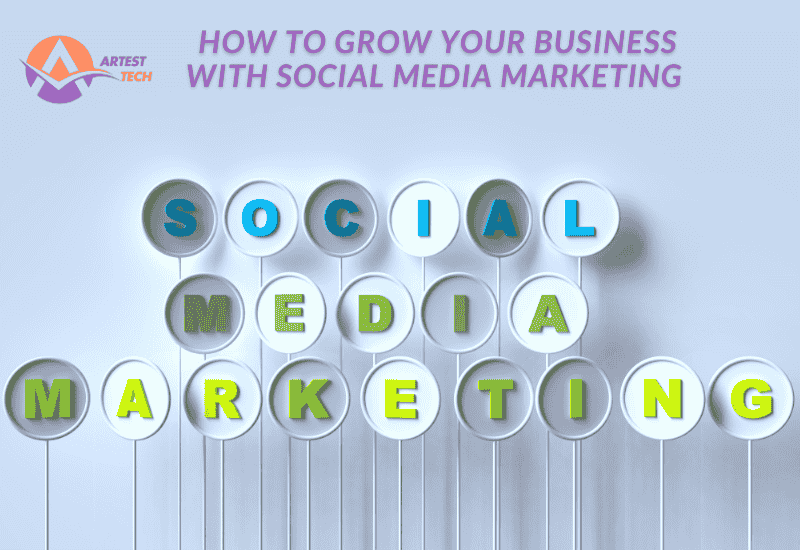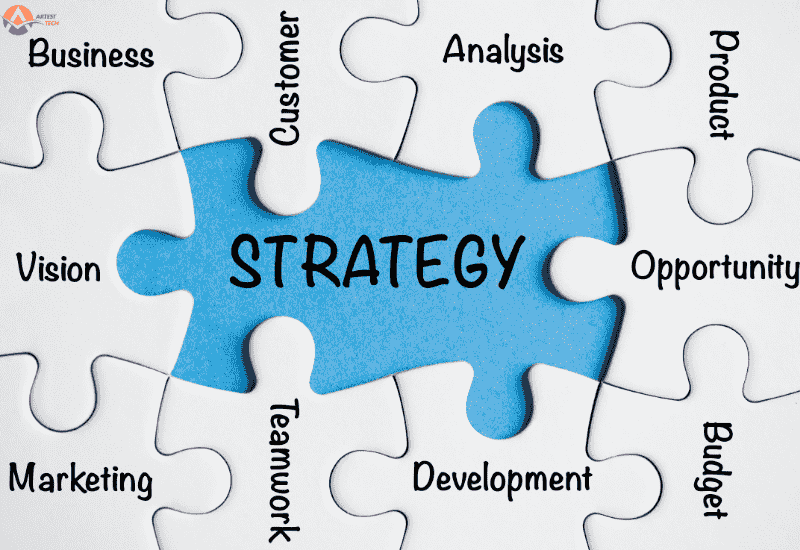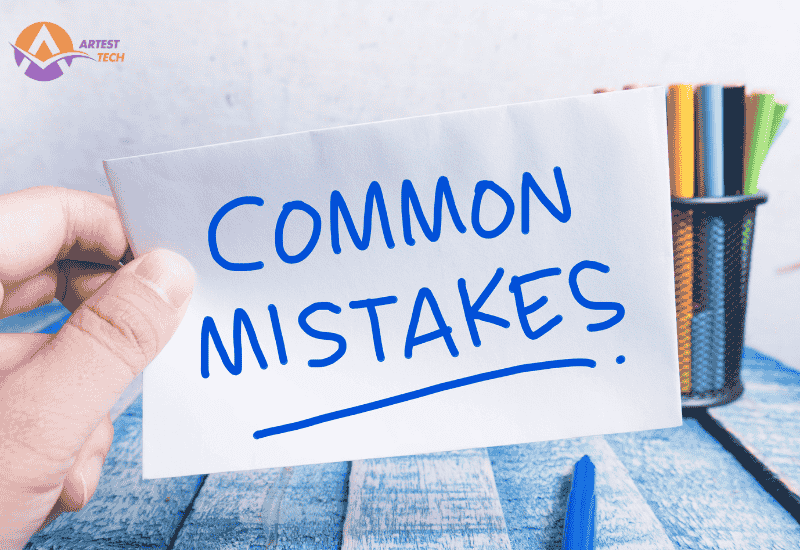
Grow Your Business with Social Media Marketing
Introduction The Power of Social Media for Business Growth
In today’s digital age, social media has become an essential tool for business growth and customer engagement. Businesses of all sizes now leverage social platforms to build brand awareness, connect with their target audience, and drive sales. With billions of users worldwide, platforms like Facebook, Instagram, and LinkedIn offer unmatched opportunities for businesses to engage with potential customers. As a result, social media marketing has evolved into one of the most effective strategies for achieving business objectives.
Moreover, social media marketing provides valuable insights into customer behavior, preferences, and engagement patterns. By tracking analytics and monitoring key metrics like click-through rates and conversion rates, businesses can adjust their strategies for optimal performance. This data-driven approach allows businesses to refine their messaging, targeting, and content, ensuring that marketing efforts align with consumer interests. Additionally, the ability to run paid advertising campaigns on social media further accelerates business growth by reaching a wider, more relevant audience.
Ultimately, social media offers businesses a cost-effective platform to boost their online presence, increase brand visibility, and build long-lasting customer relationships. Through consistent engagement, high-quality content, and strategic advertising, businesses can thrive in an increasingly competitive digital landscape. As technology continues to evolve, the power of social media in driving business success will only continue to grow, making it an essential component of any comprehensive marketing strategy.
Understanding Social Media Marketing
Social media marketing involves using platforms like Facebook, Instagram,Linkdin Pinterest and Twitter to promote products, services, or brands. It allows businesses to directly engage with their target audience, build brand awareness, and drive traffic. By creating compelling content and sharing it across various channels, businesses can foster relationships with their customers. Consequently, social media marketing has become an essential part of any modern marketing strategy, helping brands thrive in a competitive digital landscape.
To achieve success in social media marketing, businesses must create a clear strategy that aligns with their overall marketing goals. This involves identifying the right platforms, targeting the appropriate audience, and crafting engaging content. Additionally, businesses should regularly analyze social media metrics like engagement rates, reach, and click-through rates to measure success. Through data-driven insights, businesses can continuously optimize their content and campaigns for maximum impact. As a result, social media marketing becomes a powerful tool for driving growth and achieving business objectives.
Moreover, social media marketing provides businesses with the opportunity to run targeted advertising campaigns, reaching a highly specific audience. With paid ads, businesses can amplify their reach and drive conversions by targeting users based on demographics, interests, and behaviors. By combining organic and paid strategies, businesses can maximize their social media presence. Ultimately, social media marketing is crucial for building brand loyalty, increasing engagement, and driving sales, making it a cornerstone of any successful digital marketing strategy.
What is Social Media Marketing?
Social media marketing refers to using platforms like Facebook, Instagram, and Twitter to promote products, services, and brands. By creating and sharing content, businesses can connect with their target audience, build brand awareness, and increase engagement. Through organic posts and paid advertisements, companies can reach potential customers, strengthen relationships, and drive traffic to their websites. Social media has become a vital tool for marketing, offering businesses a direct way to engage with consumers.
Moreover, social media marketing involves tracking key metrics such as click-through rates, engagement, and conversion rates to measure success. By analyzing these metrics, businesses can adjust their strategies to optimize campaigns and improve results. Paid social ads allow for more targeted outreach, while content creation focuses on educating, entertaining, and engaging audiences. As a result, social media marketing is a powerful tool for businesses to grow their online presence and increase sales
The Role of Social Media in Business Growth
Social media plays a pivotal role in business growth by offering a platform for companies to connect with their audience. Through consistent engagement, businesses can build strong relationships with potential customers, increasing brand loyalty and trust. By leveraging platforms like Facebook, Instagram, and LinkedIn, companies can promote their products, share valuable content, and drive traffic to their websites. Moreover, social media marketing allows businesses to reach targeted audiences, effectively expanding their customer base and boosting sales.
In addition, social media offers businesses valuable insights through analytics tools, helping track key metrics such as engagement rates and conversion rates. This data enables companies to optimize their strategies, adjust messaging, and improve campaign effectiveness. By running paid social media ads, businesses can further increase their reach, ensuring they connect with the right audience. Ultimately, social media serves as a powerful tool for business growth, enhancing visibility, improving customer engagement, and driving revenue.

Creating a Winning Social Media Strategy
Creating a winning social media strategy begins with clearly defining your business goals and understanding your target audience. By identifying key performance indicators (KPIs) such as brand awareness, engagement, and website traffic, you can tailor your approach. It’s essential to choose the right social platforms, whether it’s Instagram, Facebook, or LinkedIn, based on where your audience spends time. Once platforms are selected, create a content calendar to ensure consistency in posting and messaging. This structured approach helps you maintain focus and aligns your content with your overall marketing goals.
Additionally, measuring the effectiveness of your social media strategy is crucial for continuous improvement. Use analytics tools to track engagement metrics like likes, shares, and comments to gauge your content’s success. Based on these insights, adjust your content and posting schedule to optimize results. Regularly running A/B tests on ads and content can help you identify what resonates best with your audience. By staying flexible and data-driven, your social media strategy will evolve, ensuring long-term growth and success for your business.
Defining Your Business Goals
Defining clear and measurable business goals is essential for ensuring your marketing efforts align with your company’s vision. By setting specific, achievable objectives, such as increasing website traffic, boosting brand awareness, or growing sales, you create a roadmap for success. These goals help direct your efforts and provide measurable benchmarks for tracking progress. It’s important to keep your goals SMART (Specific, Measurable, Achievable, Relevant, Time-bound) to ensure they remain focused and attainable. As a result, business goals act as a guiding force for decision-making, ensuring your strategy remains aligned with overall business priorities.
Furthermore, regularly evaluating your business goals allows you to adjust your strategy as needed and adapt to changing market conditions. By reviewing key performance indicators (KPIs) such as customer engagement, conversion rates, and revenue growth, you can assess whether your goals are being met. If results are not as expected, you can pivot your approach, refine your tactics, and set new objectives. This continuous evaluation process ensures that your business remains agile and responsive to market demands. Ultimately, defining your business goals is the foundation of any successful marketing strategy, driving growth and long-term success.
Identifying Your Target Audience
Identifying your target audience is crucial for creating effective marketing strategies that resonate with potential customers. By analyzing demographic data such as age, location, gender, and income, you can better understand who your ideal customers are. Additionally, consider psychographic factors like interests, values, and behaviors to further refine your audience profile. Once you have a clear picture of your target audience, you can tailor your content, messaging, and campaigns to speak directly to their needs and preferences. This focused approach ensures that your marketing efforts are efficient and impactful, leading to higher engagement and conversions.
Moreover, continuously evaluating your target audience helps you stay relevant and adapt to changing market trends. As consumer behaviors evolve, adjusting your audience profile ensures that your strategy remains effective over time. By using analytics tools and tracking metrics like website traffic, engagement, and purchase history, you can gain deeper insights into your audience’s preferences. This data-driven approach allows for more personalized and effective marketing campaigns. Ultimately, identifying and understanding your target audience is essential for driving business growth, improving customer satisfaction, and ensuring your marketing efforts reach the right people.
Choosing the Right Social Media Platforms
Choosing the right social media platforms is essential for reaching your target audience effectively and optimizing marketing efforts. Not all platforms are suited for every business, so it’s important to analyze where your audience is most active. For instance, Instagram and Pinterest are ideal for visual-based content, while LinkedIn is better suited for professional networking. By aligning your platform choice with your audience’s behavior, you can ensure your content reaches the right people. As a result, your marketing efforts become more efficient, and you can focus on platforms that provide the highest engagement rates.
Moreover, evaluating the specific features of each platform can help you tailor your content for maximum impact. Facebook offers a wide range of tools for advertising, while Twitter allows for real-time conversations and updates. By choosing platforms that complement your business goals, you can create more engaging content that resonates with your audience. Additionally, it’s important to stay adaptable and monitor performance regularly, adjusting your strategy as needed. Ultimately, the right social media platforms will help your business build a strong online presence, foster relationships, and drive conversions.

Content Creation for Social Media
Content creation for social media plays a crucial role in engaging your target audience and building brand awareness. By producing high-quality, shareable content, you can capture attention and drive traffic to your website or landing pages. It’s essential to maintain consistency across posts while ensuring that each piece of content is tailored to the platform and audience. Whether it’s images, videos, or infographics, your content should be visually appealing and aligned with your brand’s voice. As a result, your audience will connect with your message, increasing engagement and fostering long-term relationships.
Moreover, successful content creation requires understanding the preferences and behaviors of your audience, which can be done through analytics. By tracking key metrics like likes, shares, and comments, you can evaluate what resonates most with your followers. Additionally, A/B testing different content formats allows you to refine your approach and improve results over time. It’s important to stay flexible and adapt to emerging trends, ensuring your content remains relevant and engaging. Ultimately, effective content creation for social media drives brand loyalty, boosts visibility, and generates meaningful interactions with your target audience.
Types of Content That Drive Engagement
Different types of content can significantly boost engagement on social media and help businesses connect with their audience. Visual content, such as images, videos, and infographics, tends to capture attention more effectively than text alone. This type of content is highly shareable, increasing the potential for your message to reach a wider audience. Furthermore, interactive content like polls, quizzes, and challenges encourages users to engage directly, fostering a deeper connection with your brand. As a result, businesses can build stronger relationships and drive more traffic to their websites through engaging, visually appealing content.
Additionally, user-generated content (UGC) is an excellent way to increase engagement and showcase the loyalty of your audience. Encouraging customers to share their experiences or photos related to your brand can help build trust and social proof. Educational content, such as how-to guides, tutorials, and industry insights, also drives engagement by providing value to your followers. By offering helpful information, you position your brand as an authority in your industry. Lastly, live streaming has gained significant popularity, allowing businesses to interact with their audience in real-time. Ultimately, a diverse content strategy drives higher engagement, fostering long-term growth for your business.
Creating Shareable and Engaging Content
Creating shareable and engaging content is crucial for boosting your social media presence and driving traffic to your website. The key to shareability is producing content that resonates with your audience and encourages interaction. Visuals like infographics, memes, and videos are proven to capture attention and are more likely to be shared. Additionally, content that evokes strong emotions—whether humor, inspiration, or surprise—tends to be shared more widely. By understanding your audience’s preferences, you can create content that speaks directly to their needs and interests, ultimately increasing engagement and expanding your reach.
Moreover, interactive content also plays a significant role in driving engagement and shareability. Polls, quizzes, and contests invite your audience to participate and share their results with others. User-generated content (UGC) further enhances engagement by giving followers a platform to share their experiences with your brand. Providing value through educational content, such as tutorials or industry tips, also encourages shares, as people are more likely to share helpful information. Ultimately, creating shareable and engaging content helps establish your brand as relatable and valuable, increasing your visibility and fostering a loyal audience.
Visuals, Videos, and Infographics in Social Media
Visual content such as images, videos, and infographics plays a vital role in capturing attention on social media platforms. Studies show that posts with visuals receive more engagement compared to text-only posts. Videos allow businesses to showcase their products, services, or brand story in a dynamic, interactive way, increasing audience retention. Infographics are particularly effective in simplifying complex information, making it more digestible and shareable. As a result, incorporating visuals into your social media strategy helps increase reach, engagement, and brand awareness while keeping your audience entertained and informed.
Furthermore, videos and infographics are versatile tools that can be repurposed across multiple platforms to enhance your brand’s visibility. Short, engaging videos on platforms like Instagram and TikTok are perfect for grabbing attention quickly. Meanwhile, infographics can be shared on Pinterest, LinkedIn, and other platforms where users seek educational content. By creating a mix of visual content types, businesses can reach a broader audience and drive traffic to their website. Ultimately, visuals, videos, and infographics serve as powerful assets for driving social media engagement and supporting your overall digital marketing strategy.

Building and Engaging Your Social Media Community
Building a strong social media community requires consistent engagement and meaningful interactions with your audience across various platforms. By responding to comments, sharing user-generated content, and starting conversations, you can foster a sense of connection and loyalty. Additionally, running interactive campaigns like polls, quizzes, or contests encourages followers to participate actively, further strengthening your community. Regularly engaging with your audience ensures they feel valued and heard, which leads to increased brand loyalty and long-term relationships.
Moreover, creating valuable and relevant content is key to maintaining an engaged social media community. By sharing educational posts, behind-the-scenes content, and exclusive offers, you provide more than just promotional material. This helps establish your brand as an authority while offering value to your followers. Additionally, collaborating with influencers or brand advocates can expand your reach and introduce your brand to new audiences. Ultimately, building and engaging your social media community creates a dedicated, loyal following that supports your business’s growth and success.
Engaging with Followers and Responding to Feedback
Engaging with your followers is essential for building trust and a loyal community on social media platforms. By actively responding to comments, messages, and mentions, you show your audience that their opinions are valued. This engagement fosters a positive relationship, encouraging followers to interact more frequently with your content. Additionally, acknowledging feedback—both positive and negative—demonstrates your commitment to improving and meeting customer needs. As a result, your brand gains credibility, and followers feel more connected to your business.
Moreover, responding to feedback offers valuable insights into customer preferences, allowing businesses to refine their products or services. Social media platforms provide real-time conversations, enabling you to address concerns promptly and resolve issues efficiently. By maintaining a proactive approach to communication, you also create a more personalized experience for your audience. Ultimately, engaging with followers and responding to feedback enhances customer satisfaction, boosts engagement, and strengthens your brand’s online presence. This ongoing interaction is crucial for fostering long-term relationships with your audience.
Running Contests, Polls, and Giveaways
Running contests, polls, and giveaways on social media is a great way to boost engagement and grow your online community. These interactive campaigns encourage followers to participate, share their opinions, and even invite friends to join. Contests often create excitement, while giveaways provide an incentive for users to engage with your brand. By offering valuable prizes or discounts, you motivate users to follow your page, share content, or tag others. As a result, your brand gains wider visibility and attracts more potential customers, increasing engagement and brand loyalty.
Moreover, polls and surveys allow you to gather valuable feedback from your audience, helping you better understand their preferences. These tools provide insights into customer interests and behavior, which can guide future marketing strategies. Giveaways and contests also help create buzz around new product launches or promotions, driving traffic to your website or landing pages. Through these campaigns, businesses can create a sense of community and increase brand recognition. Ultimately, running contests, polls, and giveaways is an effective way to foster engagement, encourage user participation, and enhance your overall social media strategy.
Collaborating with Influencers for Brand Growth
Collaborating with influencers is an effective strategy for driving brand growth and expanding your reach on social media. By partnering with influencers who align with your brand values, you can tap into their loyal audience. Influencers create authentic content that resonates with their followers, helping your business gain credibility and trust. This influencer marketing approach not only boosts visibility but also increases engagement and conversions. As a result, your brand can reach a wider, more targeted audience, driving long-term growth and customer loyalty.
Moreover, influencer collaborations can provide valuable insights into your target market’s preferences and behavior. By tracking metrics such as engagement rates, click-through rates, and sales conversions, businesses can measure the success of their influencer campaigns. Influencers bring a human element to your marketing strategy, making your brand more relatable and appealing to their followers. Additionally, influencers help create content that can be shared across multiple platforms, amplifying your brand’s presence. Ultimately, collaborating with influencers accelerates brand growth, enhances visibility, and fosters a more personal connection with your audience.

Measuring the Success of Your Social Media Marketing Efforts
Measuring the success of your social media marketing efforts is essential for optimizing strategies and achieving better results over time. By tracking key metrics like engagement rates, click-through rates, and conversion rates, you can gain insights into how well your content resonates with your audience. Analytics tools like Google Analytics or social media insights offer valuable data to evaluate campaign performance. By analyzing these metrics, businesses can adjust content, posting frequency, and targeting strategies to improve overall engagement. As a result, you can refine your approach to achieve higher ROI and meet your marketing goals.
Furthermore, measuring success allows you to track trends and identify areas for improvement, ensuring long-term success in social media marketing. Regularly reviewing social media performance helps businesses understand what types of content generate the most interest and engagement. A/B testing can also be used to compare different strategies and optimize campaigns. By continuously monitoring and adjusting your efforts, you can stay ahead of competitors and adapt to evolving audience preferences. Ultimately, measuring the success of your social media marketing ensures that your business remains agile and on track to achieve its digital marketing objectives.
Key Social Media Metrics to Track
Tracking key social media metrics is essential for understanding the effectiveness of your marketing campaigns and optimizing strategies. Metrics like engagement rate, which includes likes, comments, and shares, help you gauge audience interaction with your content. Additionally, reach and impressions indicate how many people see your posts, providing insights into the visibility of your brand. Click-through rates (CTR) measure how many users click on links, showing the effectiveness of your call-to-action. By monitoring these metrics, you can adjust your content and posting frequency to increase engagement and improve performance.
Moreover, conversion rates are crucial for determining whether your social media efforts lead to desired actions, such as purchases or sign-ups. Follower growth rate helps track the increase in your audience size, reflecting the expansion of your brand’s reach. Additionally, social media referrals measure how much traffic your website receives from social platforms, indicating how successful your campaigns are at driving visitors. By regularly analyzing these metrics, businesses can make data-driven decisions, optimizing their social media marketing efforts for better results. Ultimately, these insights help improve engagement, conversions, and overall brand performance.
Using Analytics Tools to Optimize Your Strategy
Using analytics tools is crucial for optimizing your social media strategy and improving the overall effectiveness of your campaigns. Platforms like Google Analytics, Facebook Insights, and Instagram Analytics provide valuable data on key metrics such as engagement, click-through rates, and conversion rates. By analyzing this data, you can identify which content performs best, which platforms are most effective, and where to focus your efforts. As a result, these insights help refine your strategy, ensuring that every campaign is aligned with your business goals and audience preferences.
Additionally, analytics tools allow you to track real-time performance and make adjustments to your strategy as needed. For instance, A/B testing different ad creatives or content formats can help you determine what resonates most with your audience. Moreover, these tools provide in-depth analysis of audience demographics, behavior, and interests, allowing for more personalized content and targeted advertising. By continuously monitoring your results and leveraging analytics tools, businesses can optimize their social media strategy, increase engagement, and drive conversions. Ultimately, data-driven decisions ensure that your marketing efforts remain effective and aligned with evolving trends.

Common Social Media Marketing Mistakes to Avoid
One common social media marketing mistake is failing to define clear goals and objectives for your campaigns. Without specific goals, your efforts may lack direction, leading to ineffective content and wasted resources. Additionally, neglecting to understand your target audience can result in irrelevant content, decreasing engagement and brand loyalty. It’s crucial to invest time in audience research, ensuring that your content resonates with the right people. By setting measurable goals and focusing on your ideal audience, you can maximize the effectiveness of your social media marketing efforts and drive meaningful results.
Another mistake to avoid is inconsistent posting, which can cause your brand to lose visibility and engagement. Posting sporadically makes it difficult to build a consistent presence on social media platforms. Additionally, neglecting to engage with followers, such as responding to comments or messages, can damage your brand’s relationship with its audience. Lastly, failing to track analytics and adjust strategies based on data can prevent you from optimizing campaigns for better results. By maintaining consistency, engaging actively, and using analytics tools, businesses can avoid these pitfalls and improve their social media marketing strategy.
Not Defining Clear Goals
Not defining clear goals is one of the biggest mistakes in social media marketing and can lead to ineffective campaigns. Without clear objectives, businesses may struggle to measure success, making it difficult to optimize strategies. Whether your goal is to increase brand awareness, drive traffic, or boost conversions, having specific goals helps guide your efforts. By setting clear, measurable objectives, you can focus on what matters most and track progress toward achieving those outcomes. As a result, your social media marketing strategy becomes more efficient and aligned with your business needs.
Moreover, defining goals allows you to tailor your content and tactics to meet specific targets. For example, if your objective is to increase website traffic, you can focus on creating engaging content with strong call-to-actions and link to landing pages. On the other hand, if you aim to improve customer engagement, your strategy should emphasize interactive posts and regular communication. By clearly defining goals, businesses can allocate resources more effectively, measure performance, and adjust strategies based on data. Ultimately, setting clear goals ensures that your social media marketing efforts are purposeful and aligned with your business vision.
Ignoring Audience Engagement
Ignoring audience engagement is a common mistake in social media marketing that can negatively impact your brand’s reputation. Engaging with followers through comments, direct messages, and interactive posts creates stronger relationships, fostering brand loyalty. When businesses neglect engagement, they miss opportunities to build trust and deepen connections with their audience. Additionally, without regular interaction, followers may feel disconnected and less likely to engage with future content. As a result, engagement levels drop, leading to decreased visibility and fewer conversions. Therefore, actively engaging with your audience is essential for maintaining a thriving social media presence.
Furthermore, responding to feedback and addressing questions shows that your brand values its customers, creating a positive impression. Regular engagement allows you to understand customer preferences and pain points, providing insights for content creation and product improvements. By maintaining consistent communication with your followers, you not only boost engagement but also enhance customer satisfaction. In turn, this can lead to more word-of-mouth referrals and organic growth. Ultimately, ignoring audience engagement hinders the success of your social media marketing efforts, while actively engaging with your audience strengthens your brand’s relationship with customers, driving long-term growth.
Conclusion Scaling Your Business with Social Media Marketing
In conclusion, social media marketing is a powerful tool that can significantly scale your business by increasing brand visibility. By creating engaging content, running targeted campaigns, and fostering meaningful interactions with your audience, you can drive traffic and boost conversions. Additionally, social media platforms provide valuable insights into customer behavior, allowing businesses to adjust their strategies for optimal results. As your business grows, social media becomes a key driver of brand loyalty and customer retention, ensuring long-term success in a competitive digital landscape.
